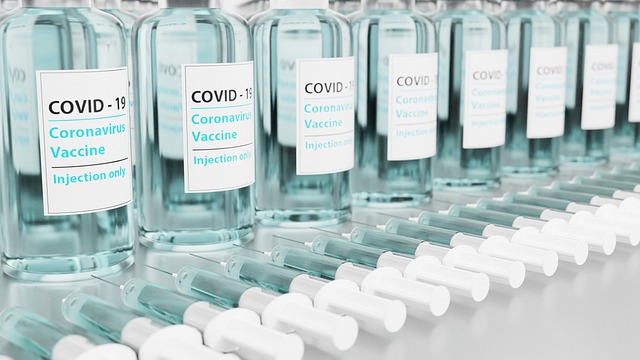High blood pressure is associated with a 22% higher chance of severe COVID-19, in a UK Biobank study of more than 16,000 infected people, although successful blood pressure reduction through medications is linked to a reduction corresponding to the risk.
Summary High blood pressure appears to be one of the most common comorbidities in COVID-19 patients, although it is unclear whether hypertensive individuals are at increased risk of severe COVID-19 compared to non-hypertensive individuals. It is also unclear whether the absolute level of systolic blood pressure or the type of antihypertensive medication are related to this risk. Analyzes were performed using data from the UK Biobank and linked health records. Logistic regression models were fitted to assess the impact of hypertension, systolic blood pressure (SBP), and medications on the risk of severe COVID-19. 16,134 people tested positive for severe acute respiratory syndrome-coronavirus, 22% (n = 3,584) developed severe COVID-19 and 40% (n = 6,517) were hypertensive. Hypertension was associated with a 22% higher odds of severe COVID-19 (odds ratio (OR) 1.22, 95% confidence interval (CI) 1.12, 1.33), compared with normotension after adjusting confounding variables. In those taking antihypertensive medications , elevated SBP showed a dose-response relationship with severe COVID-19 (150-159 mmHg versus 120-129 mmHg (OR 1.91, 95% CI: 1.44, 2.53) , >180+ mmHg versus 120-129 mmHg (OR 1.93; 95% CI 1.06, 3.51)). SBP <120 mmHg was associated with increased odds of severe COVID-19 (OR 1.40, 95% CI 1.11, 1.78). Angiotensin-converting enzyme inhibitors or angiotensin-II receptor blockers were not associated with an altered risk of severe COVID-19. Hypertension is a major risk factor for COVID-19. A better understanding of the underlying mechanisms is warranted in case of more severe strains or other viruses in the future. |

Odds ratio with 95% confidence interval for the fully adjusted model* for mean SBP within each category† on the risk of severe COVID-19 in people with hypertension treated with antihypertensive medications. *Model adjusted for Townsend Deprivation Index (measure of socioeconomic status (SES)), diabetes, smoking, ethnicity, age group, BMI category, CV comorbidity, stroke and male sex. †SBP was classified into 10 mmHg ranges, from <120 mmHg to 180+ mmHg, with the reference category defined as: 120-129 mmHg.
Discussion
Our observational study in more than 16,000 people who tested positive for COVID-19 from the UK Biobank showed that people with hypertension had more than twice the risk of developing severe COVID-19 compared to people without hypertension. Although attenuated, the effect of hypertension remained after adjusting for confounding variables.
In treated hypertensives , SBP >150 mmHg was associated with an increased risk of severe COVID-19 compared to the reference SBP level (120-129 mmHg), as was SBP <120 mmHg. However, the type of antihypertensive medication did not appear to influence the risk of severe COVID-19.
Most of the effect of hypertension on the development of severe COVID-19 was direct. However, a modest proportion of the effect was mediated by cardiovascular comorbidities . Expanding our hypertension classification to additionally include those individuals with SBP ≥140 mmHg or DBP ≥90 mmHg showed that hypertension had a slightly greater association with severe COVID-19, compared to the association based on our original hypertension classification. Interestingly, very little of this effect was mediated by CV comorbidities, while age, smoking, being male, having lower SES, higher BMI, being diabetic, and having hypertension were associated with an increased risk of COVID-19. 19 serious.
Our study also suggests that there are other effects influencing the severity of COVID-19 beyond a dichotomous diagnosis of hypertension. People with higher-than-target SBP may be less healthy, less active, have more severe hypertension, or have developed drug-resistant hypertension, suggesting that the effects of hypertension have already had detrimental physiological effects on the CV system. , which in turn may offer some explanation for the increased risk of severe COVID-19 with uncontrolled SBP.
Our analyzes also showed that the association between SBP and severe COVID-19 was J-shaped, with SBP <120 mmHg associated with a 36% increased risk of severe COVID-19 in treated hypertensive individuals. This may be due to reverse causality , where low SBP levels may indicate poorer health, such that the occurrence of severe COVID-19 may be related to an underlying disease rather than the SBP level per se. Indeed, J-shaped associations between SBP and rates of cardiovascular events and mortality have been previously demonstrated. However, the J-shaped association observed here remained after multiple adjustments, including the presence of known CV comorbidities, suggesting a possible "real" effect of low SBP in severe COVID-19, at least in the treated hypertensives. Interestingly, this association did not exist in people with untreated hypertension , possibly because fewer hypertensive people were left untreated or those who did not receive treatment may have a more recent onset of hypertension (and therefore a problem with exposure). .
A key rationale for conducting our study was the premise that alterations in circulating levels of ACE2, which the SARS-COV2 virus binds to enter cells, can alter susceptibility to severe COVID-19. In fact, upregulation of ACE2 occurs in hypertensive people treated with ACEi or ARB and ACE2 expression increases in diabetics treated with ACEi or ARB (2), hence the concern about prescribing these drugs during the coronavirus pandemic. .
It should be noted, however, that the evidence on the upregulation of ACE2 with ARB, in particular, is inconsistent and varies by organ and receptor blocker. We found no association between ACEi or ARB use and severe COVID-19 , consistent with published data showing little association between RAAS medications and risk of severe COVID-19 compared with other BP-lowering medications or no medications . Taken together, these observations suggest that circulating ACE2 levels may not necessarily affect the risk of severe COVID-19, at least in hypertensive individuals, although we did not evaluate circulating ACE2 levels in our study population.
In summary : Hypertension is a risk factor for COVID-19, the association between hypertension and COVID-19 was amplified if individuals were treated and their BP remained uncontrolled. The odds of severe COVID-19 were not affected by medication type.
















